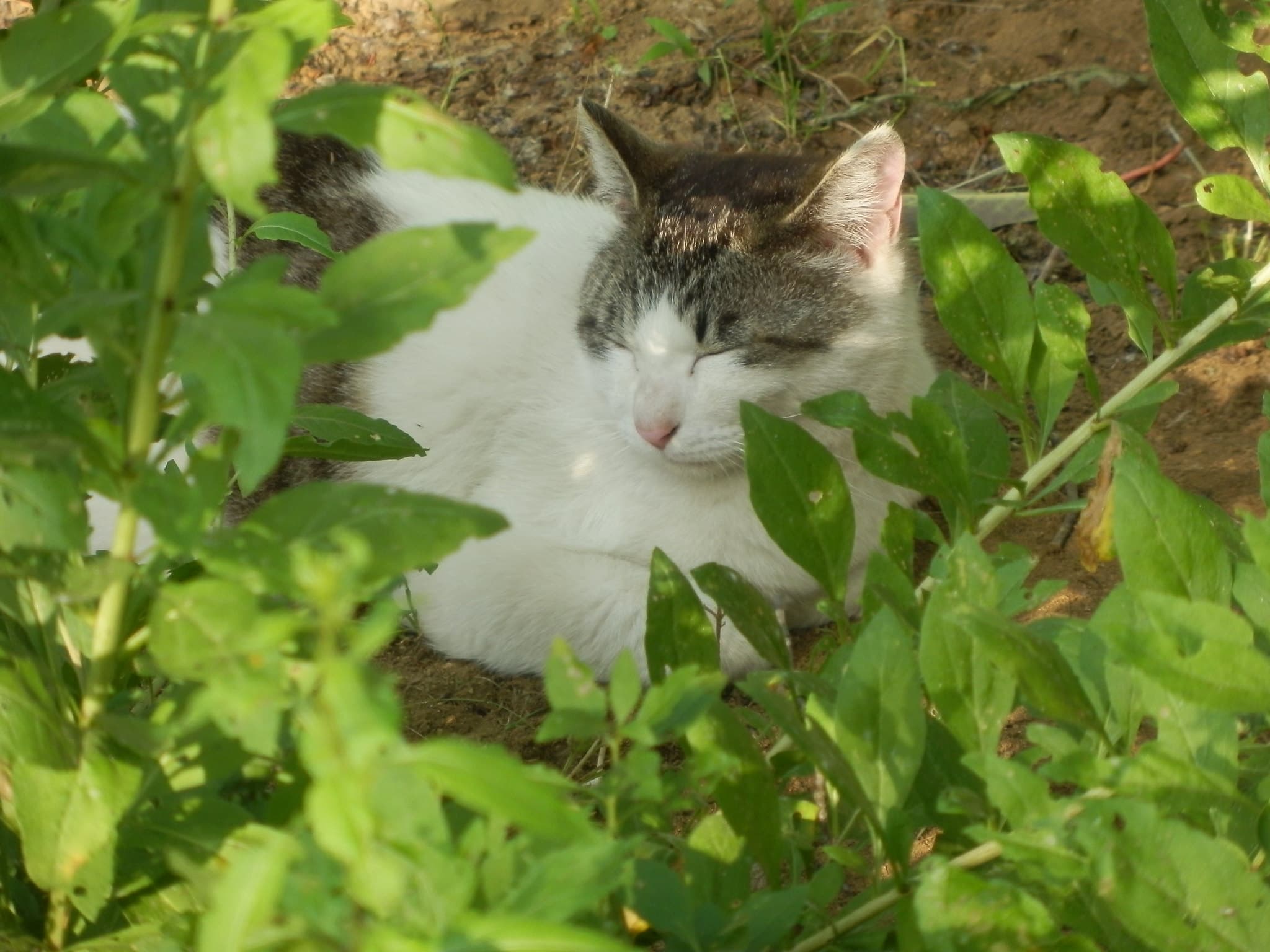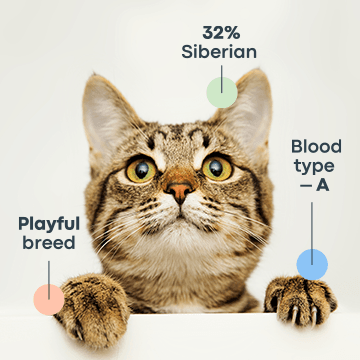Pothos plants are harmful to your feline friend, and it is important to understand what steps to take if your kitty ingests it. Knowing what symptoms to watch out for will alert you when to call your veterinarian.
Luckily, there are several houseplant options that keep your home safer for your kitty while still providing the lushness of indoor greenery.
What Is A Pothos Plant?
Epipremnum aureum, also known as golden pothos, taro vine, and devil’s ivy, has waxy, heart-shaped leaves that are so glossy and vibrant that they almost look fake. Pothos plants originate from tropical and subtropical regions and are particularly prevalent in Southeast Asia. In the West, people have been cultivating pothos as houseplants for hundreds of years. Pothos are a staple of many indoor gardens because they are low maintenance and thrive even in low light. This allows more options for decorative placement, as direct sunlight is not necessary.
So are pothos toxic to cats? Yes, and no matter the variety, pothos and pets are a bad combination.

Why Are Pothos Plants Toxic To Cats?
All cat parents know that their furry friends are insatiably curious and will usually find a way to investigate whatever strikes their fancy. If there are pothos, cats must investigate! Keeping your surroundings safe for your kitty is similar to baby-proofing your home for a toddler. But cats are expert climbers, so thwarting their dangerous desires can be even more challenging.
Felines are natural meat eaters, but they seek out greens to settle their stomachs or supplement any nutrients missing from their regular diet. It is common for cats to snack on any houseplants within their reach, especially trailing ones like pothos plants.
Pothos poisoning can occur if your kitty bites, chews on, or ingests the pothos plant. This is because the entire plant contains calcium oxalate crystals, which cause an immediate burning sensation as the crystals permeate the soft tissues of your cat's mouth, throat, and stomach.
Although not usually fatal, consuming calcium oxalate crystals can cause your pet serious discomfort and anxiety.
Symptoms of Pothos Plant Poisoning in Cats
Pawing at the mouth – obvious discomfort
Mouth irritation
Vomiting – the body reacts to toxins
Loss of appetite – even their favorite food might not interest them
Abnormal drooling – may signal irritation or pain
Difficulty swallowing
Swelling of the mouth, tongue, or lips – a sign of allergic reaction or irritation
Hoarseness or vocal changes indicate throat irritation
Lethargy – unusually tired or unwilling to move around
Labored breathing – heavy or strained breathing is always a concern
Diarrhea – digestive system upset
Tremors or seizures – uncontrolled movements
Collapse or loss of coordination – weak or unsteady movements
My Cat Ate a Pothos Leaf: What Do I Do?
Remove access to the dangerous plant. Ensure your cat cannot eat more of the pothos. Move them to a safe area away from all plants.
Call your veterinarian right away for guidance. Let them know the type of plant your cat ingested. Also, list all the symptoms you’ve observed.
Gather important information. Take a picture of the pothos plant. Bring a small sample of it to the vet. This will help the vet confirm the plant species and assess the situation more quickly.
Rinse your cat’s mouth with cool water. This will remove any plant residue. There is no point in forcing water into their mouth. This could cause choking or stress.
Your pet may require an evaluation. Be sure to provide detailed descriptions of their symptoms. Do not leave out even minor details. Your observations and the timeline of when your cat ingested the plant are crucial. There’s no specific diagnostic test for pothos poisoning.
Once pothos poisoning is confirmed, the best course of treatment will be devised. The first step often involves alleviating your cat's discomfort. It may include carefully cleaning their mouth to remove the plant's tiny and sharp crystals.
There’s no antidote for pothos poisoning. The treatment focuses on managing symptoms. The vet may administer medications to soothe gastrointestinal irritation and vomiting. IV fluids may be recommended for a dehydrated kitty.
Every situation is different. In most cases, you’ll likely be able to take your cat home immediately after treatment. Complications such as airway swelling or severe dehydration may need monitoring till they are stable.
During recovery, feed your kitty a soft diet. This will minimize irritation to their healing mouth and stomach.
How To Keep Your Cat Safe From Pothos Plants
Choose Pet-Safe Plants. The most foolproof way to avoid accidents is to remove pothos plants altogether. Decorate your home with pet-safe alternatives. There are a lot of safer options like spider plants, areca palms, or Boston ferns. These are discussed later in the article. Pet MD advises researching the best plants to keep indoors when you have a feline.
Trim Long Vines Regularly. Pothos vines that drape over furniture or dangle within a cat’s reach may be irresistible. They might start playing with the vines and end up snacking. Keep them trimmed short to remove temptation.
Use Deterrents. Cats dislike certain smells, so applying citrus-scented sprays or placing orange or lemon peels near the pothos can help deter nibbling. You can also try commercial sprays designed to keep pets away from plants.
Barrier Solutions. Place your pothos inside a plant terrarium, a glass enclosure, or a decorative cage to create a physical barrier between the plant and your cat.
Distract With Safe Alternatives. Cats often chew on plants to satisfy a natural urge or out of boredom. Provide safe, cat-friendly alternatives like cat grass, catnip, or even wheatgrass to redirect their chewing habits. Position these options in areas your cat frequents to make them more appealing than your pothos.
Train Your Cat. While it takes patience, you can teach your cat to stay away from certain plants by using clicker training and positive reinforcement. Reward them when they show interest in their safe alternatives instead of the pothos.
Supervise Plant Areas. Keep an eye on your cat when they’re in rooms with pothos or other non-pet-friendly plants, and redirect their attention if they start to approach them.
Cat-Free Zones. Place pothos plants in areas your cat cannot access. This can be a room that stays closed off or a spot with a door that latches securely. Zoetis pet blog recommends cat-proofing your entire home to make it safe.
Cat-friendly Plant Alternatives
Even though pothos is a no-go, there are many house plants that are beautiful and safe for your cat as well. The ASPCA categorizes a huge list of plants into toxic and non-toxic lists.
Here is a sampling of beautiful and low-maintenance plants that can safely coexist with your feline friends.
Peperomia
The peperomia plant is a tough plant with attractive leaves. They are drought-tolerant and require little fussing. Best of all, the many varieties of peperomia are safe for felines.
Christmas Cactus
Christmas cactuses are among the most cat-friendly plants. These attractive succulents are also non-toxic so they are perfect for your indoor garden.
Boston Fern
Boston ferns are very popular indoor plants that are pet-safe. They are easy-care but prefer a humid environment.
Prayer Plant
The cat-friendly prayer plant boasts striking tri-colored foliage. Its name is inspired by the way its leaves rise, resembling praying hands at night. This plant also craves humidity.
Get Ahead of Health Risks to Your Cat with Basepaws
Basepaws test kits help to keep you in the loop when it comes to your cat's health. You want to know your cat - inside and out - and the Basepaws Breed + Health DNA test lets you do just that. Learn about your cat’s breed profile in relation to top pedigree breeds. Gain insight on the main genetic traits associated with your cat’s unique appearance and behavior, as well as potentially life-saving information about their blood type and likelihood of resistance to Feline Immunodeficiency Virus (FIV).
In addition to the main genetic diseases, Basepaws screens your cat’s oral health for their current risk of having periodontal disease, halitosis, and tooth resorption. These painful issues are difficult to see, and poor oral health puts your feline family at risk for heart, kidney, and other health conditions. Gain peace of mind with Basepaws and get ahead of diseases before it’s too late—so that your cat can live a better life, even longer.
Whether you’re concerned about its overall health, or you just want to learn more about your cats’ genealogy, Basepaws test kits can help you to do just that.
You know what the best part is? By using Basepaws test kits, you can save so much money on vets bills. All you have to do is purchase one of Basepaws test kits, follow the instructions and Basepaws will do the rest. It’s that simple!
Conclusion
Since pothos plants are toxic to cats, it is best to avoid them in a household with feline family members if possible. If pothos and cats must coexist, responsible pet owners should keep the plants out of kitty's reach and know the symptoms of pothos plant poisoning.
Be sure to call your vet as soon as you realize your cat has consumed any part of the pothos plant, especially if they are already showing symptoms of pothos poisoning. With prompt and proper care, your fur baby should be back to peak health in no time at all.
Frequently Asked Questions
Are pothos toxic to cats? Or are pothos safe for cats?
Pothos plants are harmful to your feline friend, and it is important to understand what steps to take if your kitty ingests it. Always consult with your vet for guidance.
Why are pothos poisonous to cats?
The entire plant contains calcium oxalate crystals. These crystals cause an immediate burning sensation as they easily permeate the soft tissues of your cat's mouth, throat, and stomach.
What do I do if my cat ate a pothos leaf?
If you catch your kitty munching on a pothos plant or the symptoms of pothos poisoning are already evident, contact your veterinarian immediately.
How to make sure your cats are safe around pothos plants?
Keep the plants on high shelves or in hanging planters to discourage your cat from nibbling on them. To err on the side of caution, consider other harmless houseplant varieties instead of a pothos plant.





